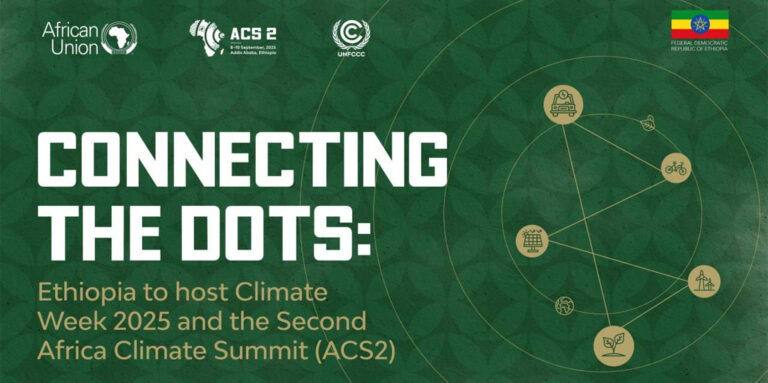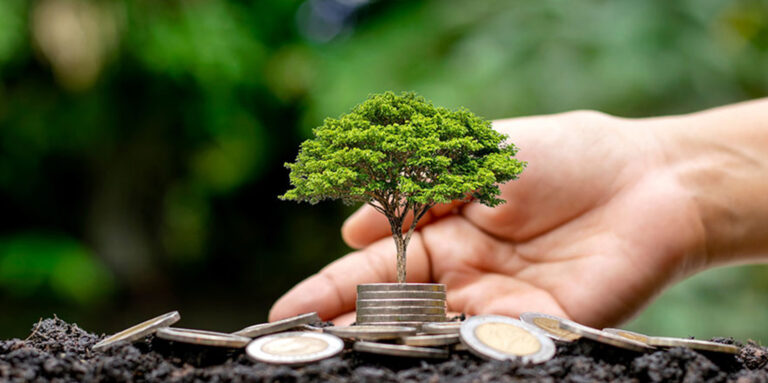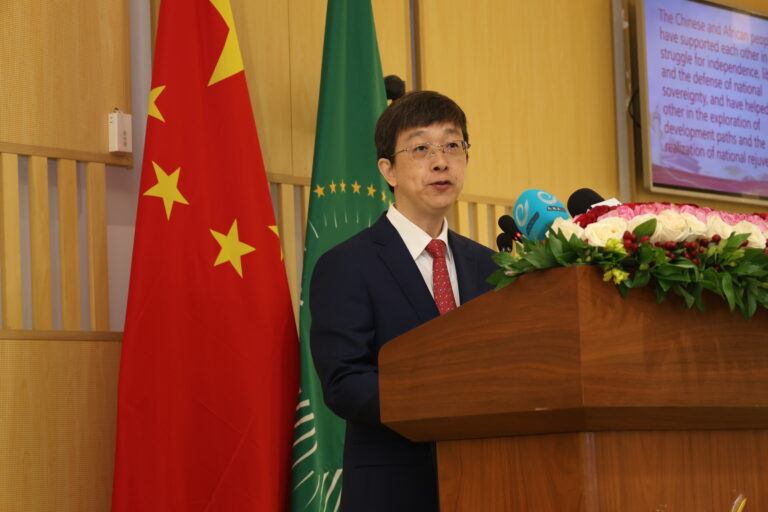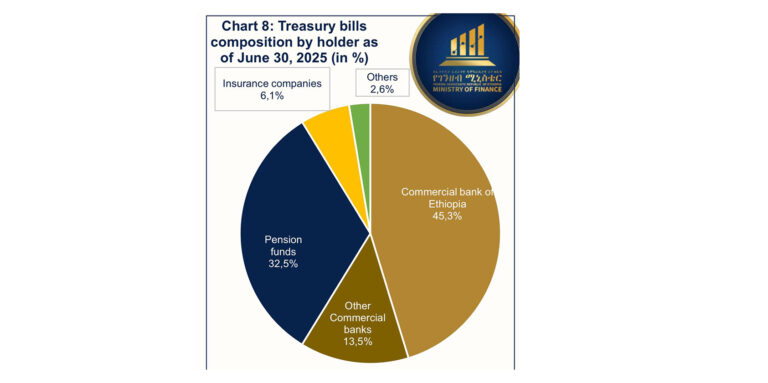As Ethiopia hosts its second African Climate Summit and the United Nations Climate Week in 2025, a new report has delivered a stark warning: the country faces a formidable climate finance gap of $252.8 billion needed by 2030 to meet its ambitious climate change goals. This yawning shortfall threatens to undermine Ethiopia’s position as a climate leader in Africa, raising urgent questions about how the nation will bridge the divide between its commitments and available resources.
A Critical Moment for Climate Leadership
Ethiopia has gained recognition across Africa and the world for its proactive approach to climate change. Its pioneering policies include banning imports of non-electric vehicles and achieving 100% electricity generation from renewable sources since 2022. Yet, behind this leadership lies a daunting financial challenge that threatens the implementation of essential climate adaptation and mitigation projects.
The new ‘Climate Finance Shadow Report for the Intergovernmental Authority on Development Regional Economic Community (IGAD REC)’—released by Oxfam on September 4, 2025—illuminates the scale of the funding gap confronting Ethiopia and its IGAD neighbors. The $252.8 billion figure required by Ethiopia alone stands as the highest financial need among the eight IGAD member states, which also include Djibouti, Eritrea, Kenya, Somalia, South Sudan, Sudan, and Uganda.
Across the entire IGAD region, the total climate finance needs are estimated at $417.9 billion by 2030. This figure is particularly alarming given that it represents only about 42% of the $100 billion annual global climate finance target pledged by developed countries to be provided by 2025.
The Size and Nature of the Climate Finance Gap
The report reveals that the bulk of Ethiopia’s climate funding requirement—approximately $220.4 billion—is earmarked for mitigation efforts aimed at cutting greenhouse gas emissions. Adaptation, which involves strengthening resilience to climate impacts, accounts for $32.4 billion, a figure the report cautions may be underestimated due to the inherent difficulties in assessing adaptation needs accurately.
Across the IGAD region, total mitigation costs outpace adaptation costs, with $273.1 billion needed for mitigation compared to $144.8 billion for adaptation. However, the uncertainties around future climate scenarios and limited technical capacity mean that actual adaptation costs could be higher.
The financing gap is compounded by the fact that climate finance flows to the region remain woefully inadequate. Between 2013 and 2022, the IGAD region received an average of $2.3 billion annually in climate finance, which falls drastically to $1.7 billion per year when adjusted for interest and debt servicing. This accounts for a mere 4% of the total financing demand, underscoring a profound mismatch between need and delivery.
Regional Disparities and Access Barriers
The report highlights significant inequalities in climate finance distribution within the IGAD states. Ethiopia, Kenya, and Uganda fare comparatively better, receiving $8.2 billion, $7.4 billion, and $3.4 billion respectively. By contrast, conflict-affected and fragile states like South Sudan ($891 million), Sudan ($960 million), Eritrea ($117 million), and Somalia ($1.4 billion) receive far less support.
On a per capita basis, disparities are stark: Kenya receives approximately $14 per person per year, while Sudan and Eritrea receive only $2 and $3 respectively. These figures pale in comparison to the global average of $25 per person annually estimated by the OECD between 2016 and 2022.
Challenges are further exacerbated by complex application procedures, stringent eligibility standards, and onerous financial regulations of current climate finance mechanisms. These obstacles disproportionately affect weak and conflict-ridden countries in the IGAD region, hampering their access to necessary funds.
Debt Crisis Deepens Climate Finance Vulnerability
A major concern underscored by the report is the reliance on loan-based climate finance, which adds to an already severe debt burden across the IGAD states, particularly Ethiopia. According to the International Monetary Fund and World Bank’s debt sustainability analyses, Ethiopia is officially classified as facing debt distress.
Ethiopia’s external debt ballooned to 56% of GDP in 2022, surpassing the IMF’s recommended 50% threshold for low-income countries. Roughly 30% of this external debt is owed to private creditors, which often carry higher interest rates and less favorable terms.
The report explains that increasing reliance on foreign loans for climate projects risks exacerbating Ethiopia’s fiscal constraints, as rising global interest rates have significantly increased debt servicing costs. This troubling trend undermines the country’s capacity to invest in climate resilience and sustainable development, potentially pushing it further into financial fragility.
Climate Change, Gender, and Agriculture: Interlinked Vulnerabilities
The Oxfam report also brings attention to the crucial intersections of climate change with gender and agriculture—two pillars of Ethiopia’s economy and society.
The agricultural sector, which more than 80% of the IGAD population depends on for livelihoods, faces critical underfunding; only 15% of the estimated climate finance needs for agriculture have been allocated. Given that agriculture is highly sensitive to climate variability, insufficient investment poses risks to food security and rural incomes.
Women, who constitute approximately 29% of Ethiopia’s workforce, bear disproportionate burdens from climate change impacts. Structural challenges—such as limited land ownership rights, restricted access to financing, and technology deficits—render women especially vulnerable. The report strongly advocates for climate finance that explicitly prioritizes gender equality and delivers targeted support to women to enhance their resilience.
Calls to Action: Justice and Equity in Climate Finance
The Oxfam report issues a powerful call to climate finance providers, national governments, and civil society organizations to urgently increase aid-based (grant) funding, especially for conflict-affected countries within the IGAD region.
The briefing insists climate finance is not charity but a matter of climate justice. Since IGAD countries collectively contribute negligibly to global greenhouse gas emissions, expecting them to shoulder climate action primarily through debt-financing is unjust and unsustainable.
Moreover, the report warns that excessive dependence on high-interest credit—particularly for climate resilience initiatives that may not yield immediate economic returns—could entrench cycles of debt and poverty, exacerbating inequalities and undermining the very goals of sustainability.






